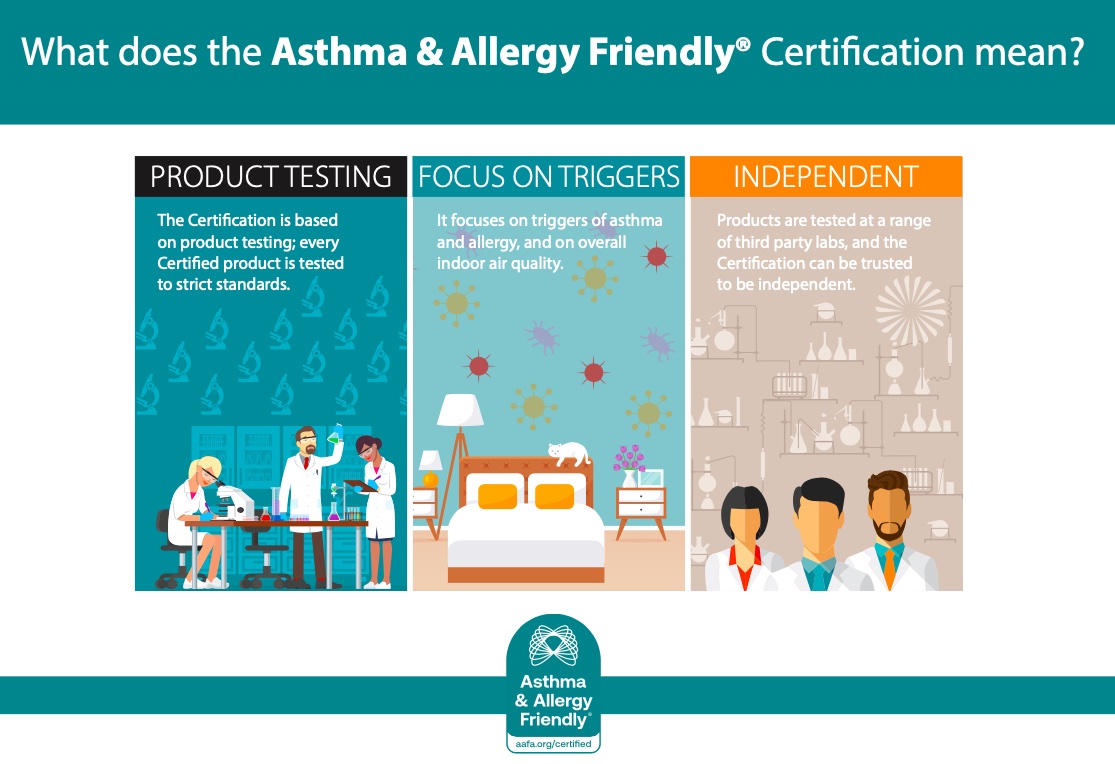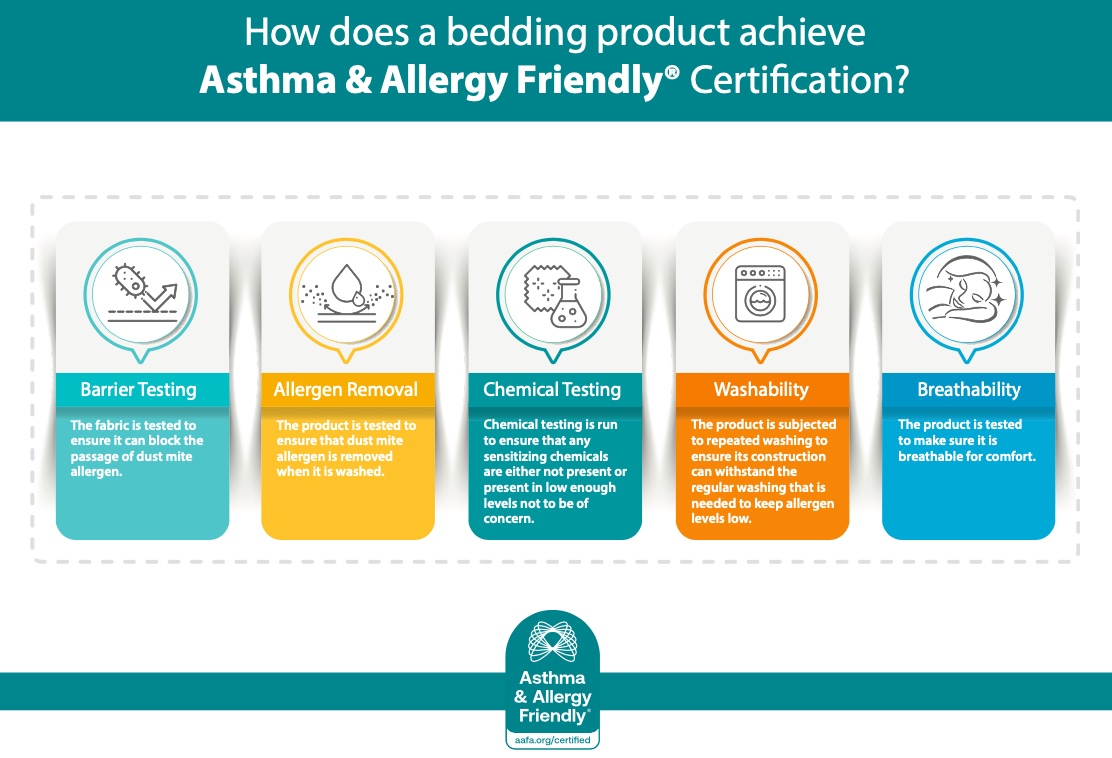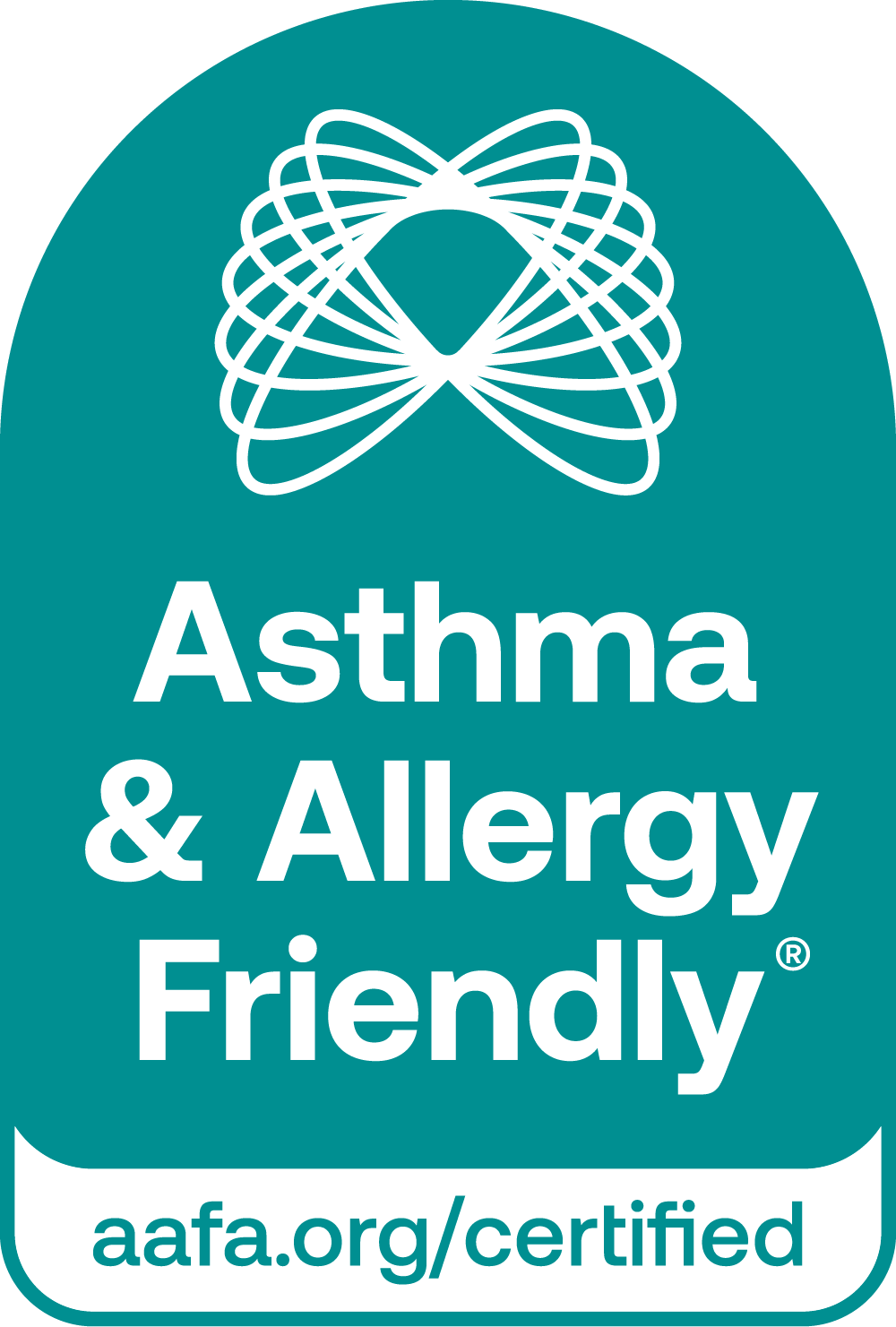Bedding can significantly impact indoor air quality due to allergens like dust mites and potentially harmful chemicals, making it important to choose scientifically tested and certified products for a healthier home environment.
Indoor air quality (IAQ) is vital for a healthy living environment, especially for those with asthma or allergies. An often overlooked factor in IAQ is the quality of your bedding, including pillows, duvets, mattresses, and sheets. Bedding can significantly affect the environment in your home due to allergens like dust mite allergen and potentially harmful chemicals used in textile production. Choosing the right bedding is crucial for creating a healthier home environment.
How Bedding Affects Indoor Air Quality
Bedding is a key contributor to the air quality in your bedroom. Dust mites, which thrive in the warm, humid environment of bedding, are a major concern. These tiny creatures, invisible to the naked eye, feed on dead skin cells, making mattresses, pillows, and duvets ideal habitats. The problem lies not just in the mites themselves but in their body parts and waste, which can trigger asthma and allergic reactions. There is a strong association between sensitization to allergens derived from dust mites and conditions including asthma, perennial rhinitis, and atopic dermatitis.
Chemicals used in bedding manufacturing can also impact IAQ. Textiles often undergo treatments for wrinkle resistance, contain vibrant colors, and added chemicals which impart flame retardancy, all of which can introduce irritants into your indoor environment. For example, formaldehyde, commonly used in bedding, is a known irritant that may exacerbate asthma and cause skin reactions. Similarly, azo dyes, which create bright colors, can break down into potentially harmful substances.
Given these risks, it’s crucial to choose bedding products carefully, especially since many people, including children and the elderly, spend significant time in bed.
Effective Bedding and Strategies for Better Indoor Air Quality
Using scientifically validated dust mite-proof encasings for pillows, duvets, and mattresses is a highly effective strategy to improve the indoor environment. These encasings are designed to block dust mites and their allergens from passing through, preventing them from coming into contact with the skin or becoming airborne. For maximum effectiveness, the fabric’s parameters such as thread count and pore size are important to support the material acting as a barrier while still allowing breathability for comfort during sleep.
In addition to using encasings, regularly washing bedding in hot water (130°F/55°C) helps control dust mite allergen exposure along with potential other allergens such as pet dander. Selecting quality, breathable bedding products which can withstand frequent hot washing, are tightly woven and do not contain known irritating chemicals is important for cultivating an optimal healthier sleep environment.
The Importance of Third-Party Certification
Given the potential health impacts associated with dust mite allergen and potentially irritating chemicals in bedding, choosing products that are independently tested and verified to meet strict standards is essential. This is where third-party certifications like the Asthma & Allergy Friendly® Certification Program play a crucial role.
The Asthma & Allergy Friendly® Certification Program, developed by Allergy Standards Limited in collaboration with the Asthma and Allergy Foundation of America (AAFA), helps consumers identify products that are more suitable for people with asthma and allergies. Unlike unregulated claims like “hypoallergenic”, which can be used by manufacturers without any standardized testing, this certification is based on rigorous scientific testing in accredited laboratories.
How the Certification Program Tests and Certifies Bedding

The certification process for bedding under the Asthma & Allergy Friendly® Certification Program is thorough and multifaceted. It involves several key tests to ensure the product is effective at reducing allergen exposure, while also confirming that the constituents of the bedding contain no allergenic or sensitizing chemicals, or that their concentration is low enough to warrant least possible concern for sensitive individuals.
- Barrier Testing: The cover fabric is tested to ensure it prevents dust mites and allergens from passing through. This test is also applied to seams and zippers, which are potential weak points in the bedding.
- Allergen Removal: Bedding is seeded with allergens in a controlled environment, then washed to confirm that washing effectively reduces allergen content.
- Repeated Washing: Since bedding needs to be washed regularly to maintain low allergen levels, it is subjected to repeated washing cycles to ensure it maintains its integrity and physical properties.
- Chemical Testing: Fabric and fill materials are assessed for the presence of residual chemicals including azo dyes, pesticides, volatile organic compounds (VOCs), allergenic and irritant chemicals.
- Breathability: The bedding is tested for breathability to ensure comfort while acting as an allergen barrier.

Why Choose Certified Bedding?
Choosing bedding with the Asthma & Allergy Friendly® Certification Mark ensures that the product has been rigorously tested and proven to support better indoor air quality. Certified products help reduce allergen exposure and are tested for harmful chemicals that could impact on your health.
In a market flooded with unregulated health claims, third-party certifications like the Asthma & Allergy Friendly®Certification Program are essential for making informed decisions. By choosing Certified bedding, you are not only improving the comfort of your sleep environment but also taking a significant step toward creating a healthier home for you and your family.
Conclusion
In conclusion, bedding plays a crucial role in indoor air quality, particularly for individuals with asthma or allergies. Dust mites and chemical treatments in bedding have the potential to impact your health, making it essential to choose products that have been independently tested and certified. The Asthma & Allergy Friendly® Certification Program offers a reliable way to ensure that your bedding meets strict standards, empowering you to create a healthier, more comfortable home environment.
